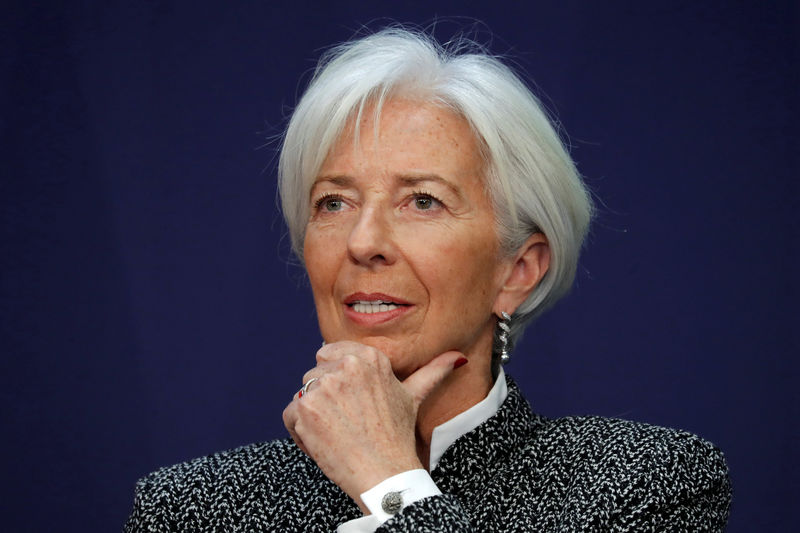(Bloomberg Opinion) -- If the ability to learn from mistakes is an essential quality in a great leader, then Christine Lagarde has the potential to be an excellent president of the European Central Bank.
When Lagarde was nominated to the post this week, some worried that, as a lawyer by training, she might lack the economic chops to oversee the region’s monetary policy. Such concerns seem overblown. Her support of current ECB chief Mario Draghi’s efforts to preserve the euro and fight off deflation suggest she’s amply capable of responding to the next economic downturn — something that can’t be said of other candidates.
Yet to truly prepare the euro area for whatever tests may come, the ECB president will need to be a lot more than a monetary-policy expert. She must also have the political will and conviction to push for the deeper structural changes crucial to making the currency union viable. On that front, the lessons Lagarde appears to have learned over the past decade should prove invaluable.
Consider Europe’s banks. After the 2008 financial crisis, they desperately needed to raise fresh capital, so they would have the financial wherewithal to support the recovery and weather the next shock. Lagarde was initially on the wrong side of the issue: As finance minister of France, which had some of the region’s most thinly capitalized banks, she insisted all was well and opposed efforts to increase requirements.
Yet when Europe’s sovereign debt crisis again exposed the system’s weaknesses, Lagarde relented. As managing director of the International Monetary Fund, she said what few officials dared: that banks urgently needed a “substantial” recapitalization, and that governments should put up the money if private markets wouldn’t. She has since kept up the pressure. At a time when most officials are becoming less vigilant, she’s rightly calling for banks to build up capital while the economic environment is still conducive.
Europe’s serial bailouts of Greece provided another learning opportunity. The country’s financial travails, although brought on in part by mismanagement, revealed a fatal flaw in the currency union: It lacked a mechanism to provide fiscal support for struggling members. Again, Lagarde started off on the wrong foot. She was on board with European leaders’ disastrous solution, which involved lending even more to the insolvent government and demanding severe austerity measures in return.
Unlike other leaders, though, Lagarde recognized how damaging that policy proved to be. Under her watch, the IMF publicly admitted that the austerity had been counterproductive, killing off growth and causing unnecessary suffering. And in later rounds of bailout negotiations, she provided a rare voice in support of the significant debt relief Greece needed to get its economy and government finances back on track.
Now, as the economic outlook darkens, the euro area faces the same fundamental problems. Its banks need more capital, along with joint deposit insurance and dedicated government funds to prevent panic when the next crisis comes. Its members must stand ready to help countries out of temporary slumps, and to back up a central bank that is running low on ammunition.
Lagarde is more than acquainted with these issues. She has lived them, and come to the right conclusions. It’s thus fitting that, as the head of one of the world’s most powerful central banks, she should find herself in a position to do something about them.
—Editors: Mark Whitehouse, Timothy Lavin.
To contact the senior editor responsible for Bloomberg Opinion’s editorials: David Shipley at davidshipley@bloomberg.net, .
Editorials are written by the Bloomberg Opinion editorial board.
©2019 Bloomberg L.P.
